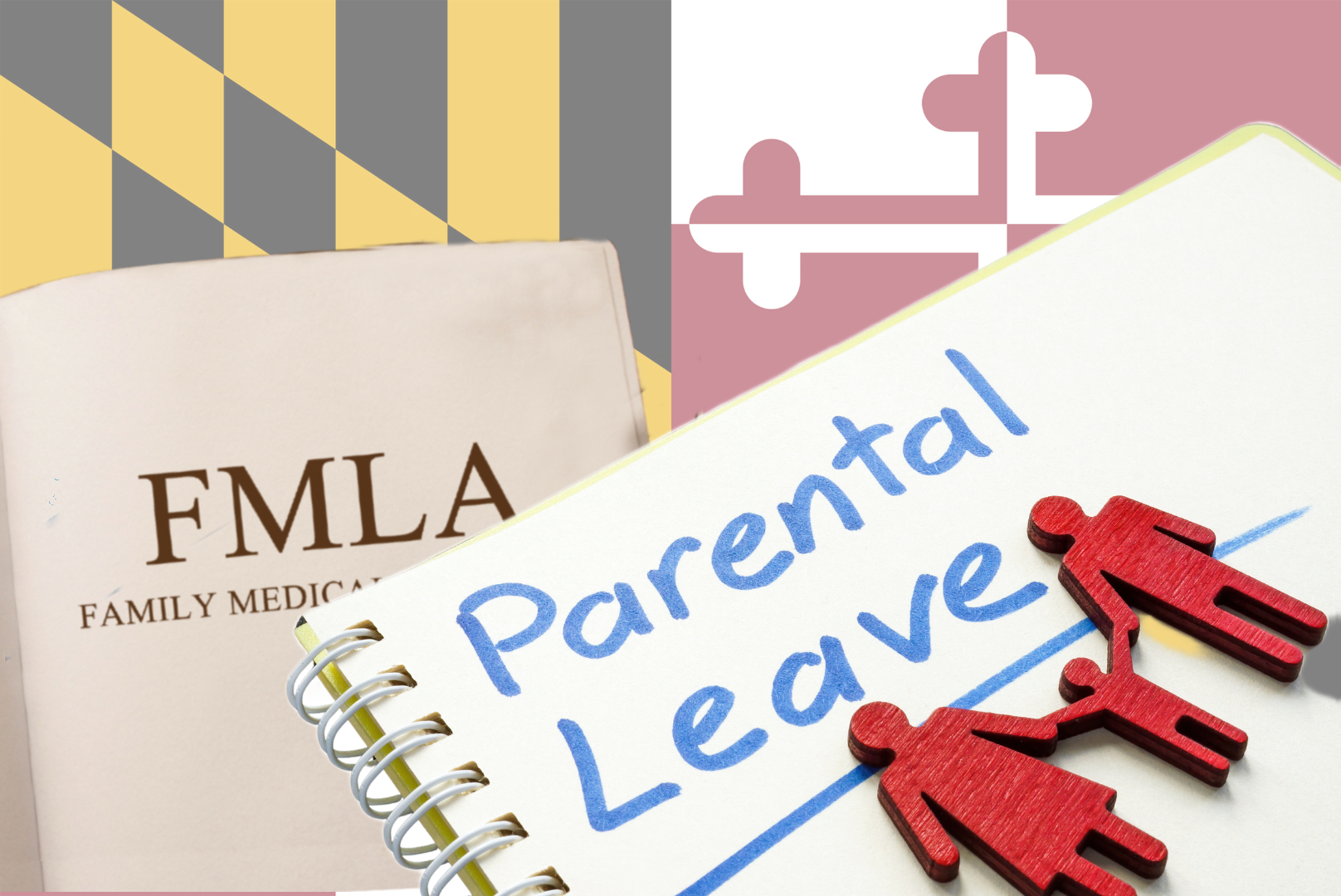
BALTIMORE
10075 Red Run Boulevard
Suite 401
Owings Mills, MD 21117
(443) 738-4900
FREDERICK
10 North Jefferson Street
Suite 200
Frederick, MD 21701
(240) 220-2415
BETHESDA
7315 Wisconsin Avenue
Suite 400W
Bethesda, MD 20814
(240) 220-2415
Maryland Clarifies Which Employers Are Covered Under the Parental Leave Act
November 13, 2025
Luanne Mottley

When Maryland enacted the Maryland Parental Leave Act (MPLA) in 2014, the goal was clear — to give employees at smaller companies access to parental leave protections similar to those provided under the federal Family and Medical Leave Act (FMLA).
The MPLA covers employers with 15 to 49 employees, filling the gap for those not large enough to fall under the FMLA’s 50-employee threshold. Under the MPLA, eligible employees are entitled to up to six weeks of unpaid parental leave for the birth of a child or the placement of a child for adoption or foster care, to be taken within 12 months of the qualifying event.
Who Is Eligible?
An employee qualifies for MPLA leave if they:
- Have worked for the employer for at least 12 months, and
- Have completed 1,250 hours of work during the previous 12 months.
If the employer provides paid leave, they can require that paid leave be used as part of the six-week parental leave period. For example, if an employee takes six weeks of parental leave but has two weeks of paid leave available, the employer may apply the paid leave to the first two weeks, followed by four weeks of unpaid leave.
2025 Amendment: Avoiding Overlap with the FMLA
A recent amendment to the MPLA, effective October 1, 2025, brings important clarification. The new law specifies that employers covered under the FMLA are now exempt from the MPLA. In short:
- FMLA applies to employers with 50 or more employees in 20 or more workweeks in the current or prior calendar year.
- MPLA applies to employers with 15 to 49 employees in 20 or more workweeks in the current or prior calendar year.
Previously, there were instances where both laws could apply — particularly when a company’s workforce size fluctuated around the 50-employee mark.
How the Amendment Works
Consider a company that had 55 employees for 20 or more workweeks last year but 47 employees for the same duration this year. Before the amendment, it was unclear whether the MPLA might apply this year since the company had dipped below 50 employees.
Under Senate Bill 785, the employer is considered covered by the FMLA for the current calendar year because it met the 50-employee threshold last year. Therefore, only the FMLA applies, and the employer is exempt from the MPLA.
Why It Matters
This change helps eliminate confusion for employers and ensures that no business is covered by both laws at the same time. It also reinforces the original intent of the MPLA — to extend parental leave benefits to employees only at smaller companies that fall below the federal FMLA threshold.
What Should Employers Do Next?
Employers should review their workforce numbers over the past two years to confirm whether they fall under the FMLA or the MPLA. HR professionals and business owners should work with their employment lawyers to update policies accordingly to ensure compliance and avoid double coverage.